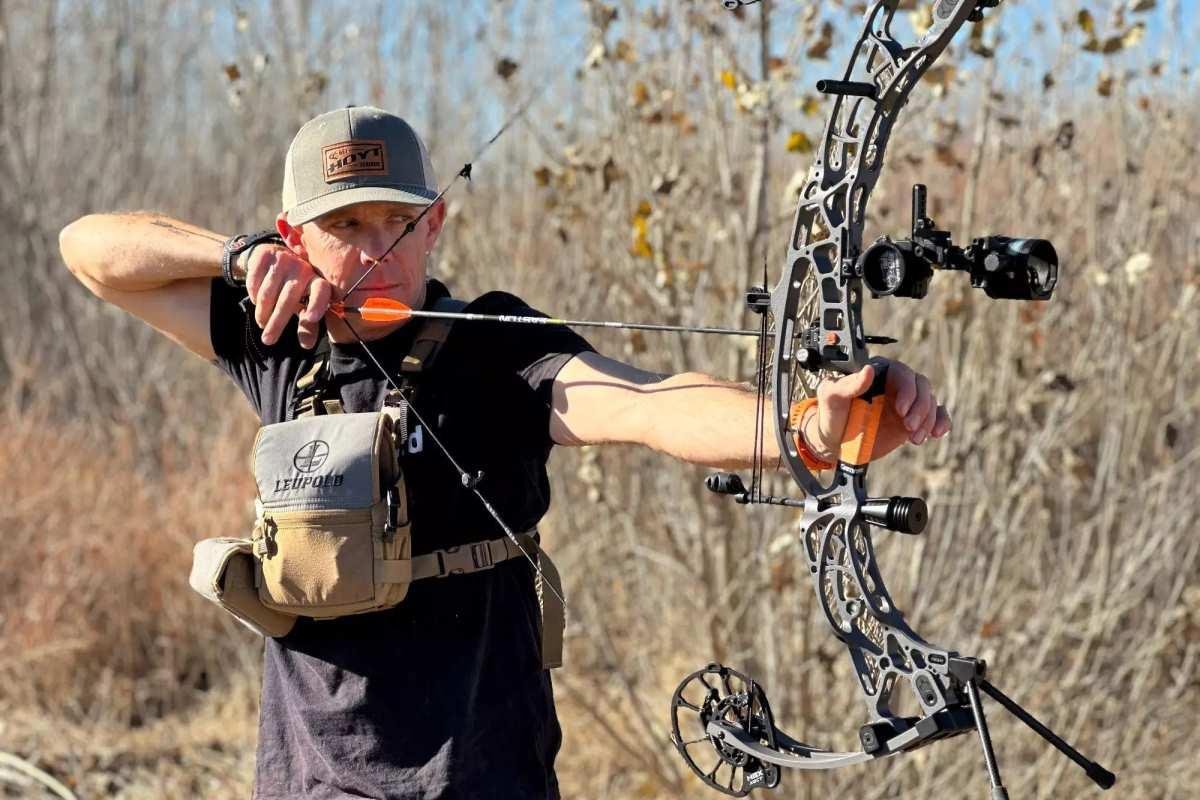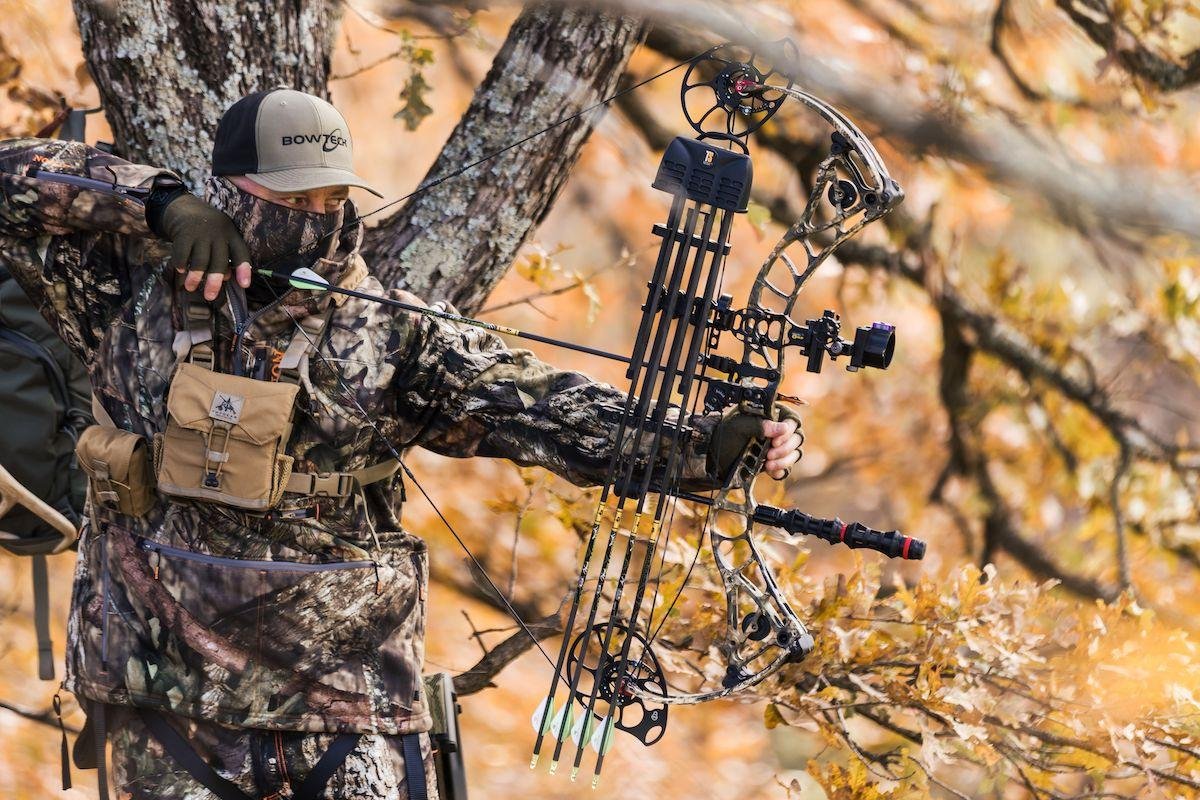The Thrill of the Rut: Essential Tips for Bow Hunting Success
As autumn sweeps across the landscape, a magical transformation begins to unfold in the world of wildlife. Leaves don their fiery hues, and the crisp air buzzes with life as one of the most anticipated times of the year nears—rut season. For bow hunters, this is not just a change in the weather; it’s an invitation to an exhilarating dance of strategy, patience, and precision in the pursuit of deer. Whether you’re a seasoned veteran or a curious newcomer eager to test your skill, understanding the nuances of hunting during this pivotal time can greatly enhance your experience. In this article, we’ll explore some friendly, down-to-earth tips to help you navigate the excitement of rut season, ensuring you not only increase your chances of a successful hunt but also immerse yourself in the beauty of nature’s rhythm. So, grab your gear, embrace the adventure, and let’s dive into the art of bow hunting during one of the wildest times of the year!
Mastering the Art of Scouting: Finding Hotspots During Rut
To truly elevate your bow hunting experience during rut season, mastering the art of scouting is paramount. First, familiarize yourself with the behavioral patterns of deer during this intense mating period. During rut, bucks are on the move, searching for does and establishing dominance. Utilize a mix of visual and olfactory scouting techniques to identify hotspots. This could include:
- Checking Tracks: Look for fresh tracks and scrapes in areas where deer are likely to travel.
- Observing Rubs: Locate significant rubs on trees, which indicate active buck territory.
- Analyzing Trail Cameras: Set up cameras in areas with known deer activity to gain insights into their movements.
- Identifying Feeding Areas: Investigate food sources that attract does, as bucks will be close behind.
It’s also beneficial to map out key locations that are likely to be hotbeds of activity during the rut. Consider creating a simple table to keep track of your findings:
| Location | Type of Sign | Date Observed |
|---|---|---|
| North Ridge | Fresh Scrapes | 10/15 |
| East Field | Tracks & Rubs | 10/18 |
| South Waterhole | Feeding Signs | 10/20 |
By consolidating your findings and staying observant, you’re not only increasing your chances of encountering those elusive bucks during rut but also enhancing the overall thrill of the hunt. As you venture out, remember to adapt your strategy based on what the deer are telling you on the ground. Happy scouting!

Equipment Essentials for a Successful Rut Experience
To make the most of your rut hunting experience, having the right gear is essential. First and foremost, your bow setup should be flawless. Consider using a bow that you are comfortable with and perfectly tuned for accuracy. Additionally, a well-maintained release aid is crucial to ensure consistent shooting. Don’t forget to pack extra arrows, as you may need them during those thrilling encounters. Also, consider carrying a lightweight quiver to keep your gear organized and easily accessible while you keep your eyes peeled for the trophy buck.
In addition to your bow, clothing plays a vital role in your comfort and success. Layering is key; start with a moisture-wicking base layer, followed by insulation, and finish off with a waterproof outer shell. High-quality hunting boots will keep you comfortable and quiet in the field. Alongside these essentials, don’t overlook the importance of deer scent control products, as they can significantly increase your chances. To help with your gear selection, refer to the table below for a quick checklist of must-haves:
| Equipment | Purpose |
|---|---|
| Bow | Precision shooting |
| Release aid | Improved accuracy |
| Arrows | Sufficient supplies for shots |
| Clothing layers | Comfort and adaptability |
| Hunting boots | Quiet movement and support |
| Deer scent control | Minimize detection |

Timing is Everything: Understanding the Rhythm of the Rut
Understanding the rhythm of the rut is essential for successfully navigating your bow hunting endeavors. During this magical time, deer exhibit altered behavior, driven by their instinctive need to breed. This period typically occurs in the fall, though the timing can fluctuate depending on the region and environmental factors. Observing the signs in nature will improve your chances of locating active deer. Key indicators include:
- Increased deer activity at dawn and dusk
- Frequent scent marking on trees and foliage
- Rubs and scrapes indicating territorial behavior
When you monitor these cues, you can pinpoint the shifts in deer movement, allowing you to position yourself successfully.
Another critical element of hunting during the rut is choosing the optimal times to be in the field. Deer tend to be more active as they chase mates, and understanding their daily patterns will enhance your chances of a successful hunt. Research suggests that peak activity often coincides with:
| Time of Day | Activity Level |
|---|---|
| Early Morning (6 AM – 9 AM) | High |
| Midday (12 PM – 2 PM) | Moderate |
| Late Evening (4 PM – 7 PM) | High |
By maintaining awareness of these peak times and integrating adaptive strategies into your approach, you can enhance your likelihood of encountering those elusive, rut-activated deer. Happy hunting!
Attracting Attention: Effective Calling Techniques During Peak Season
During the rut season, capturing the attention of elusive bucks requires skillful calling techniques that mimic the natural sounds these animals make. Mimicking doe bleats can be particularly effective, as the sound signifies a receptive female, often eliciting curiosity and aggression from nearby bucks. Try incorporating a series of soft, rhythmic bleats and adjust your volume based on the surrounding environment; a lower tone can prove effective in densely wooded areas, while a louder call might be necessary in open fields. Remember, patience is key. Allow ample time between calls to avoid overcalling, as this can alert deer that the sounds are not genuine.
In addition to bleats, consider integrating grunts and rattling into your calling strategy. Bucks often respond to the sounds of sparring, especially during peak rut, as they compete for dominance over territory and mates. Use soft grunts to signal your presence and increase the volume gradually if you sense a buck is nearby. Experiment with rattling techniques; light clashing antlers can fool wary deer into thinking a fight is in progress, luring them in for a better look. Below is a simple comparison of suggested calling techniques and their estimated effectiveness during rut season:
| Calling Technique | Best Use Case | Estimated Effectiveness |
|---|---|---|
| Doe Bleats | Attracting nearby bucks | High |
| Soft Grunts | Comfort signaling | Medium |
| Rattling | Dominance calls | High |
| Hail Mary Calls | Last resort attractor | Variable |
Key Takeaways
As we wrap up our journey through the exhilarating world of bow hunting during the rut season, we hope these tips serve as your trusty guide in the heart of the woods. Remember, every season is a new adventure, filled with the thrill of the chase and the beauty of nature in its most raw form. Equip yourself with patience, strategy, and a deep appreciation for wildlife, and you’ll not only increase your chances of success but also forge unforgettable memories in the great outdoors.
So, whether you’re nestled in your favorite tree stand or tracking through the underbrush, take a moment to soak in the sights and sounds around you. Cherish every encounter, learn from every experience, and, most importantly, have fun! The rut season may bring its challenges, but with the right mindset and preparation, it can also be one of the most rewarding times of the year. Happy hunting, and may your arrows fly true!

